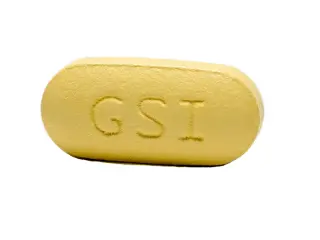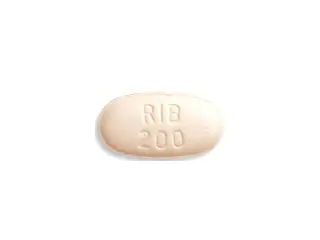Hepatitis C Virus (Hcv)
Explore our range of Hepatitis C Virus (HCV) medications designed to support effective treatment and recovery. Find trusted antiviral drugs and therapies for managing HCV, available for purchase with reliable quality and competitive pricing. Enhance your treatment plan with our pharmaceutical options tailored to combat Hepatitis C.
The category "Hepatitis C Virus (HCV)" includes several effective medications designed to treat and cure HCV infections. These drugs work by targeting the virus directly or helping the body's immune system combat the infection. The main goal is to eliminate the virus from the bloodstream, halt liver damage, and prevent complications like cirrhosis and liver cancer.
One popular medication is Copegus. It contains ribavirin and is often used in combination with other antiviral drugs. Copegus helps reduce the viral load and enhance treatment effectiveness. It is typically prescribed for specific types of HCV infection. The treatment duration can vary from 12 to 48 weeks depending on the virus genotype and patient condition. Side effects of Copegus may include anemia, fatigue, and nausea. Patients should be monitored regularly during treatment.
Daklinza is another important drug in the HCV category. It contains daclatasvir, which blocks a key protein needed for the virus to multiply. Daklinza is generally used along with other antiviral agents like sofosbuvir. This combination has shown high success rates, even in difficult-to-treat patients. Treatment with Daklinza is usually shorter, around 12 weeks, and offers good tolerability. Common side effects include headache, fatigue, and nausea but are generally mild.
Harvoni is a well-known medication combining ledipasvir and sofosbuvir. It is a fixed-dose combination pill taken once daily. Harvoni has revolutionized HCV treatment by providing a simple and highly effective option. It works by inhibiting viral replication at multiple stages, resulting in higher cure rates. Treatment duration can be as short as eight to twelve weeks. Harvoni is effective for multiple HCV genotypes and is often chosen for its convenience. Side effects are usually mild and may include headache, fatigue, and diarrhea.
Sovaldi, which contains sofosbuvir, is a breakthrough drug against HCV. It is a nucleotide analog that interferes with viral RNA synthesis. Sovaldi is frequently used alongside other antivirals like ribavirin or daclatasvir. This drug has drastically improved cure rates and reduced treatment lengths. Patients typically take Sovaldi for 12 weeks, but this can vary by genotype and liver condition. The side effect profile is favorable, with fatigue and headache being the most common complaints.
All these medications require careful prescription and follow-up with a healthcare provider. Dosage and treatment plans depend on the virus genotype, stage of liver disease, and patient health status. It is crucial to complete the full course of therapy to achieve a sustained virologic response (SVR), which means the virus is undetectable after treatment ends.
Patients should avoid alcohol and consult their doctor about potential drug interactions during treatment. Regular blood tests will help track viral load and liver function. In many cases, these antiviral drugs have allowed patients to clear the infection and enjoy a better quality of life.
Overall, the HCV category encompasses several powerful antiviral agents. Copegus, Daklinza, Harvoni, and Sovaldi are included among the most popular and effective choices. These medications have transformed Hepatitis C from a chronic, difficult-to-treat illness into a curable disease in most patients. Timely diagnosis and access to these drugs remain key factors in successful outcomes.



